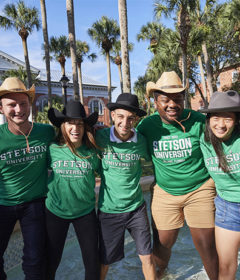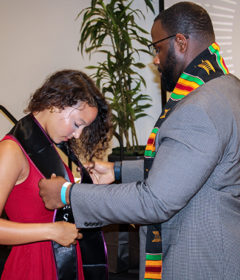Inside Out
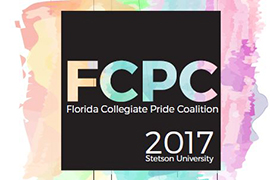
As Stetson University readies to open its doors to the 14th annual Florida Collegiate Pride Coalition Conference March 31-April 2, a core group of dedicated students continues to work for greater understanding and tolerance of sexual orientation among their peers and the larger community.
Medorie Petersen-Woodburn, chair of the FCPC conference student planning committee, is leading a handful of students to bring hundreds of people from Florida and across the Southeast to Stetson for the conference. With the theme, Inside Out, students hope to open a frank conversation about mental health, education and holistic wellness for the lesbian, gay, bisexual, transgender and queer/questioning community.
In addition, with Stetson being the first private liberal arts institution to host the event, they are looking at the conference as an opportunity to showcase the university.
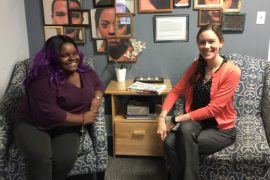
For one, organizers believe the Pulse nightclub shooting in June 2016 – an attack that targeted the LGBT community that left 49 dead – will play a prominent role in discussions.
“This conference is very important on Stetson campus because we have a very strong diversity inclusion initiative,” said Petersen-Woodburn, 20, a social science major. “You can’t be diverse and inclusive if you don’t have these conversations.”
The FCPC annual conferences began in 2003 as a way for the LGBTQ+ community to grow and network. Each year, the conference has been hosted at large universities across the state, including the University of Florida and the University of South Florida.
The three-day schedule is filled with events focused on helping mental health professionals better understand the issues that affect the LGBTQ+ community. The event features workshops about counseling on topics that include helping LGBTQ+ couples build biological families, substance abuse and a session titled, “What it is like to be trans and still be with your spouse.”
The keynote speaker is John Super, Ph.D., a University of Florida clinical assistant professor of counselor education who played a role in providing mental health counseling in the Orlando area in the days after the Pulse shooting. Pulse owner Barbara Poma is another speaker.
Conference attendees will watch Disney’s Inside Out, an animated film that puts faces and personalities to emotions. Other events include a vigil for Pulse victims.
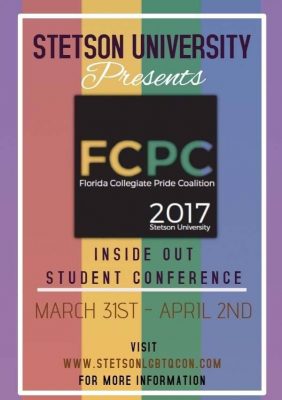 Bek Luke, a double major in psychology and philosophy, has been working alongside Petersen-Woodburn to make sure the conference runs smoothly. His job is to sign up sponsors, help with volunteers, and communicate with speakers and entertainers. A senior, he said the conference is important to him as a transgender man because it underscores how the larger LGBT community cares.
Bek Luke, a double major in psychology and philosophy, has been working alongside Petersen-Woodburn to make sure the conference runs smoothly. His job is to sign up sponsors, help with volunteers, and communicate with speakers and entertainers. A senior, he said the conference is important to him as a transgender man because it underscores how the larger LGBT community cares.
“Being trans, I want to do as much for my community as I can,” he said.
According to Lamerial McRae, Ph.D., a member of the faculty (Brown Scholar Visiting Professor, Department of Counselor Education) and staff conference planning committee, the students involved in the planning are developing skills beyond classroom learning. At the same time, McRae added, Stetson is sending a signal to the larger community of acceptance and healing, especially in light of the Pulse attack.
“I don’t think anyone went unaffected by Pulse,” she said.
Students in McRae’s Multicultural Counseling class created posters and research that will be presented at the conference. One of those students, Payton Montague, a graduate student in the counseling program, said it’s important to reach out to the LGBT community on all levels. Montague and another student, Stacey Stanford, will be presenting their project, “Same-sex parenting: from the inside out.”
“All parents need help these days,” Montague said.
The conference, Petersen-Woodburn commented, is a way for the local LGBT community to reach out and show there is “a community of people who are similar to you but not the same.”
“Now more than ever, you can’t hide the fact that there’s homophobia and discrimination on all levels. And you can’t hide the fact that there is oppression on every level,” said Petersen-Woodburn.
“Especially after Pulse, there’s been this outcry of confusion, of hurt, but also this sense of how can I help? What can I do? What is my role in someone else’s life? How do I learn about people who are different from me and how can I help them? I think this conference is a way to get people who are hurt together to understand what it is to look at someone who might share one part of you but not every part.”
– Amy R. Connolly


